Kwabena Nuamah
Exploring the Meta-level Reasoning of Large Language Models via a Tool-based Multi-hop Tabular Question Answering Task
Jan 12, 2026Abstract:Recent advancements in Large Language Models (LLMs) are increasingly focused on "reasoning" ability, a concept with many overlapping definitions in the LLM discourse. We take a more structured approach, distinguishing meta-level reasoning (denoting the process of reasoning about intermediate steps required to solve a task) from object-level reasoning (which concerns the low-level execution of the aforementioned steps.) We design a novel question answering task, which is based around the values of geopolitical indicators for various countries over various years. Questions require breaking down into intermediate steps, retrieval of data, and mathematical operations over that data. The meta-level reasoning ability of LLMs is analysed by examining the selection of appropriate tools for answering questions. To bring greater depth to the analysis of LLMs beyond final answer accuracy, our task contains 'essential actions' against which we can compare the tool call output of LLMs to infer the strength of reasoning ability. We find that LLMs demonstrate good meta-level reasoning on our task, yet are flawed in some aspects of task understanding. We find that n-shot prompting has little effect on accuracy; error messages encountered do not often deteriorate performance; and provide additional evidence for the poor numeracy of LLMs. Finally, we discuss the generalisation and limitation of our findings to other task domains.
ALIST: Associative Logic for Inference, Storage and Transfer. A Lingua Franca for Inference on the Web
Mar 12, 2023Abstract:Recent developments in support for constructing knowledge graphs have led to a rapid rise in their creation both on the Web and within organisations. Added to existing sources of data, including relational databases, APIs, etc., there is a strong demand for techniques to query these diverse sources of knowledge. While formal query languages, such as SPARQL, exist for querying some knowledge graphs, users are required to know which knowledge graphs they need to query and the unique resource identifiers of the resources they need. Although alternative techniques in neural information retrieval embed the content of knowledge graphs in vector spaces, they fail to provide the representation and query expressivity needed (e.g. inability to handle non-trivial aggregation functions such as regression). We believe that a lingua franca, i.e. a formalism, that enables such representational flexibility will increase the ability of intelligent automated agents to combine diverse data sources by inference. Our work proposes a flexible representation (alists) to support intelligent federated querying of diverse knowledge sources. Our contribution includes (1) a formalism that abstracts the representation of queries from the specific query language of a knowledge graph; (2) a representation to dynamically curate data and functions (operations) to perform non-trivial inference over diverse knowledge sources; (3) a demonstration of the expressiveness of alists to represent the diversity of representational formalisms, including SPARQL queries, and more generally first-order logic expressions.
Investigating the use of Paraphrase Generation for Question Reformulation in the FRANK QA system
Jun 06, 2022
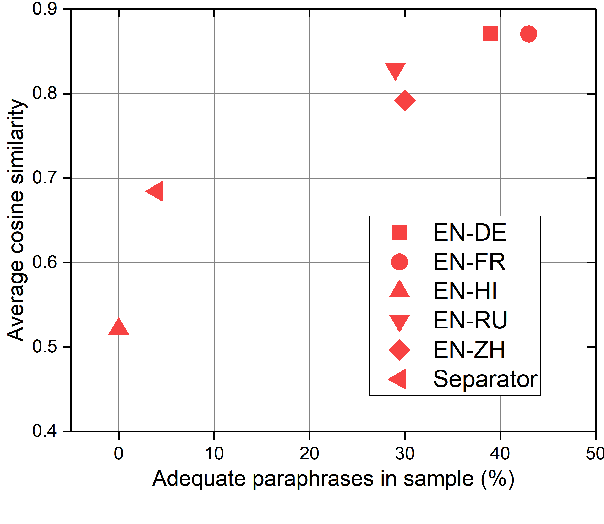
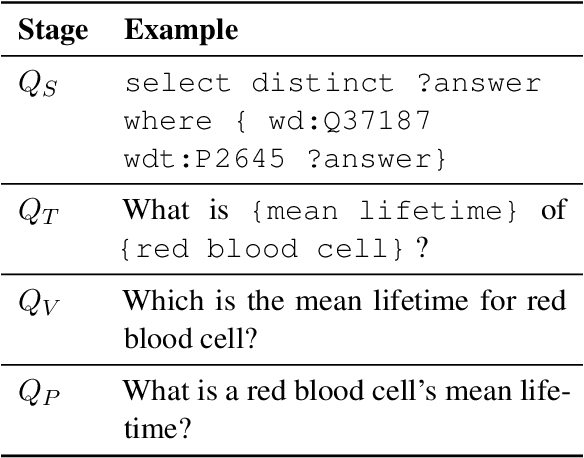
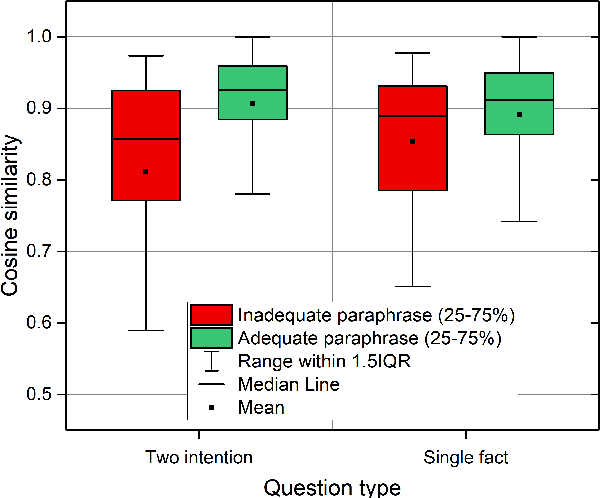
Abstract:We present a study into the ability of paraphrase generation methods to increase the variety of natural language questions that the FRANK Question Answering system can answer. We first evaluate paraphrase generation methods on the LC-QuAD 2.0 dataset using both automatic metrics and human judgement, and discuss their correlation. Error analysis on the dataset is also performed using both automatic and manual approaches, and we discuss how paraphrase generation and evaluation is affected by data points which contain error. We then simulate an implementation of the best performing paraphrase generation method (an English-French backtranslation) into FRANK in order to test our original hypothesis, using a small challenge dataset. Our two main conclusions are that cleaning of LC-QuAD 2.0 is required as the errors present can affect evaluation; and that, due to limitations of FRANK's parser, paraphrase generation is not a method which we can rely on to improve the variety of natural language questions that FRANK can answer.
Deep Algorithmic Question Answering: Towards a Compositionally Hybrid AI for Algorithmic Reasoning
Sep 29, 2021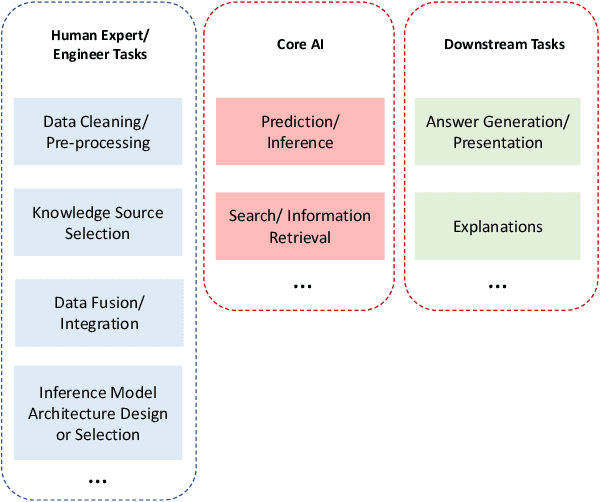
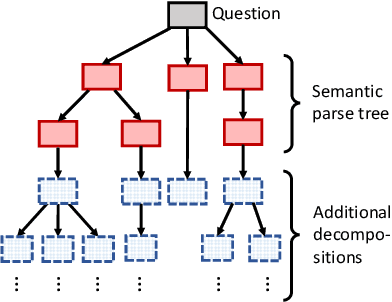
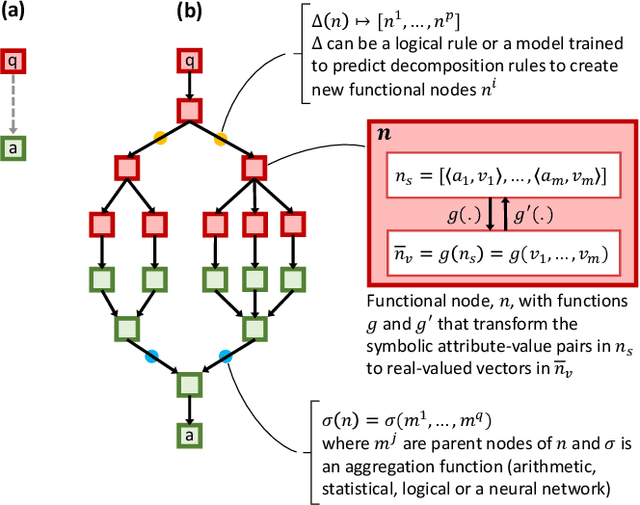
Abstract:An important aspect of artificial intelligence (AI) is the ability to reason in a step-by-step "algorithmic" manner that can be inspected and verified for its correctness. This is especially important in the domain of question answering (QA). We argue that the challenge of algorithmic reasoning in QA can be effectively tackled with a "systems" approach to AI which features a hybrid use of symbolic and sub-symbolic methods including deep neural networks. Additionally, we argue that while neural network models with end-to-end training pipelines perform well in narrow applications such as image classification and language modelling, they cannot, on their own, successfully perform algorithmic reasoning, especially if the task spans multiple domains. We discuss a few notable exceptions and point out how they are still limited when the QA problem is widened to include other intelligence-requiring tasks. However, deep learning, and machine learning in general, do play important roles as components in the reasoning process. We propose an approach to algorithm reasoning for QA, Deep Algorithmic Question Answering (DAQA), based on three desirable properties: interpretability, generalizability and robustness which such an AI system should possess and conclude that they are best achieved with a combination of hybrid and compositional AI.
 Add to Chrome
Add to Chrome Add to Firefox
Add to Firefox Add to Edge
Add to Edge